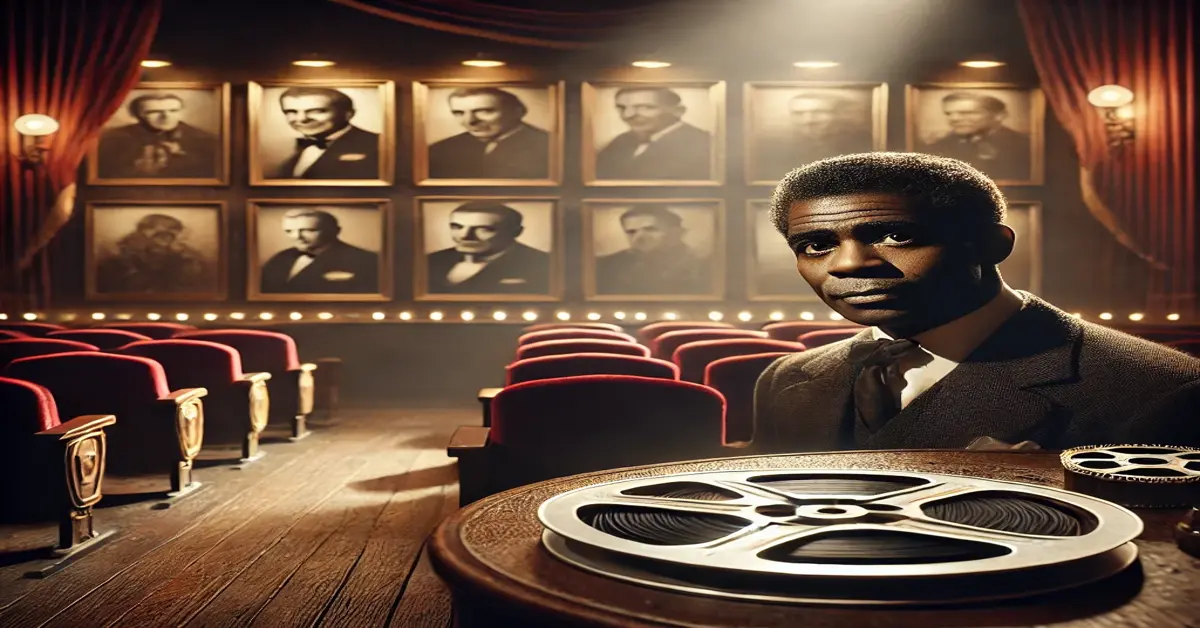Robert Earl Jones is a name that resonates with the echoes of Hollywood’s golden age. Often overshadowed by his more famous son, James Earl Jones, Robert’s contributions as an actor and pioneer are worthy of celebration. With roots deeply embedded in the world of theatre and film, he carved out a unique space for himself during a transformative era in American entertainment.
His journey is one filled with resilience and creativity. From humble beginnings to standing on some of the most prestigious stages and sets, Robert Earl Jones left an indelible mark on the industry. Let’s explore the life of this remarkable figure who not only shaped his own destiny but also influenced generations to come.
Pioneer
Robert Earl Jones was a true pioneer in every sense of the word. He broke barriers during an era when opportunities for Black actors were limited, paving the way for future generations. His determination and talent opened doors that had long been closed.
His work wasn’t just confined to film; he made significant strides in theatre as well. Jones was part of a movement that aimed to elevate African American storytelling on stage, showcasing rich narratives often overlooked by mainstream audiences.
This commitment to his craft and community inspired many aspiring artists. Robert’s legacy is not solely defined by his performances but also by his role as a trailblazer who challenged norms in Hollywood and beyond.
READ MORE:NFTRandomize: Redefining Digital Art with NFT Creations
Introduction
Robert Earl Jones was a remarkable figure in Hollywood history. As an actor, he carved out a niche not only for himself but also for African Americans in the entertainment industry during a time of limited opportunities. His contributions have left an indelible mark on film and theatre.
Born into challenging circumstances, Jones overcame numerous obstacles to become a celebrated performer. His talent shone brightly across various mediums, showcasing his versatility and dedication to craft.
Jones’s journey is one of resilience and passion. He embraced roles that highlighted both his skills and the rich tapestry of stories often overlooked in mainstream cinema. Understanding his life reveals much about the evolution of American theatre and film, making him a true pioneer worth remembering.
Early Life
Robert Earl Jones was born on February 3, 1910, in Senatobia, Mississippi. Growing up in the segregated South, he experienced life’s challenges early on. His family instilled a love for storytelling and performance that would shape his future.
As a young boy, Robert’s passion for acting flourished during school plays and local performances. This spark ignited his ambition to pursue a career in the arts. He later moved to Detroit with aspirations of becoming an actor.
His journey wasn’t easy; financial struggles often stood in his way. However, determination fueled his quest for success. With each small victory, Robert laid the groundwork for what would become an extraordinary Hollywood legacy.
READ MORE:NFTRandomize: Redefining Digital Art with NFT Creations
Career
Robert Earl Jones had a remarkable career that showcased his versatile talent. He made his mark in the theater, captivating audiences with powerful performances. His stage presence was formidable, earning him respect among peers and critics alike.
Transitioning to film, he appeared in iconic movies like “The Sting” and “The Cotton Club.” These roles highlighted not only his acting skills but also his ability to embody complex characters. Each performance added depth to his growing body of work.
Television offered yet another platform for Jones’ talents. He guest-starred on various shows throughout the years, leaving an indelible impression on fans and fellow actors. His contributions to the industry are significant and continue to inspire future generations.
Theatre
Robert Earl Jones made an indelible mark on the theatre scene long before he graced film and television. His powerful voice and commanding presence captivated audiences across various stages. He was not just an actor; he brought scripts to life with a vibrancy that was uniquely his own.
Jones often collaborated with notable playwrights, showcasing versatility in roles ranging from classic Shakespearean characters to contemporary dramas. His performances were characterized by emotional depth, reflecting both strength and vulnerability.
Beyond acting, Jones contributed to the growth of African American theatre. He paved the way for future generations while championing diverse narratives. His legacy resonates within theatrical circles today as a testament to passion and dedication in performing arts.
Filmography
Robert Earl Jones made his mark in the film industry with a diverse range of roles. He appeared in classics that showcased his talent and versatility. His performances left an indelible impression on audiences.
One of his notable films was “The Sting” (1973), where he shared the screen with legendary actors like Paul Newman and Robert Redford. This role helped solidify his presence in Hollywood during a dynamic era for cinema.
Jones also lent his voice to animated projects, demonstrating yet another facet of his skills. He voiced characters in productions such as Disney’s “Dumbo” (1941). His contributions to film remain significant, highlighting a career filled with memorable moments and groundbreaking achievements.
Television
Robert Earl Jones made significant contributions to television, showcasing his talents on various platforms. His presence in the medium began in the 1950s when he appeared in several live productions. These performances highlighted his exceptional range and charisma.
One of his notable roles was in “The Twilight Zone.” This iconic series allowed him to display his dramatic prowess alongside other talented actors. Fans appreciated his ability to captivate audiences with every line delivered.
Throughout the years, Jones also graced shows like “The Ed Sullivan Show” and “M*A*S*H.” Each appearance reinforced his status as a versatile performer. He became an unforgettable figure during a transformative era for television entertainment.
Personal Life
Robert Earl Jones was not only a talented actor but also a devoted family man. He had a rich personal life that often stayed out of the limelight. His relationships were meaningful and shaped who he was.
Jones married actress and singer, Ruth E. Jones, with whom he shared several children. Their bond exemplified love and support in the competitive world of show business. Family gatherings were filled with laughter, creativity, and storytelling.
Despite his fame, Robert cherished his privacy. He often found solace in simple pleasures like gardening or enjoying nature. This grounding connection to life outside Hollywood kept him humble amid success.
Legacy
Robert Earl Jones left an indelible mark on the world of entertainment. His contributions to theatre and film continue to inspire aspiring actors today. He paved the way for future generations, proving that talent knows no boundaries.
His performances were characterized by depth and authenticity, earning him respect from peers and audiences alike. Beyond his roles on stage and screen, he was a mentor who fostered emerging artists’ careers.
Jones’ legacy also extends into the cultural landscape, where he broke down barriers in Hollywood during a time of racial prejudice. His story serves as a reminder that perseverance can lead to greatness in any field, especially within the arts.
References
When exploring the life and work of Robert Earl Jones, various sources provide valuable insights. Biographies offer detailed accounts of his journey from humble beginnings to Hollywood fame.
Documentaries about classic cinema often feature his contributions, shedding light on his role in shaping the industry. Interviews with peers reveal anecdotes that highlight his talent and character.
Scholarly articles also delve into themes present in Jones’ works, analyzing how he broke barriers for actors of color during a pivotal time in film history. These references enrich our understanding of this remarkable pioneer and solidify his place within American entertainment culture.
READ MORE:Celebrity Movie Archive: Hollywood’s Timeless Gems
External Links
For those interested in delving deeper into the life and work of Robert Earl Jones, several external links offer a treasure trove of information. Online film databases, such as IMDb, provide comprehensive details about his extensive career.
Additionally, various interviews and documentaries highlight his contributions to theater and cinema. These resources allow fans to appreciate not just his roles but also the impact he had on aspiring actors.
Social media platforms often celebrate his legacy through fan pages dedicated to his achievements. Engaging with these communities can lead to fascinating discussions about Jones’s influence on Hollywood and beyond.
Conclusion
Robert Earl Jones’ journey through life is a testament to resilience and talent. His contributions to the arts have paved the way for future generations, particularly African American actors in Hollywood. From his early beginnings on stage to memorable roles in film and television, he left an indelible mark.
His dedication transcended mere performances; it laid groundwork for inclusivity within the industry. As audiences continue to appreciate his work today, Robert Earl Jones remains a symbol of perseverance in a challenging landscape. His legacy will inspire aspiring artists long into the future, ensuring that his spirit lives on through their achievements.









